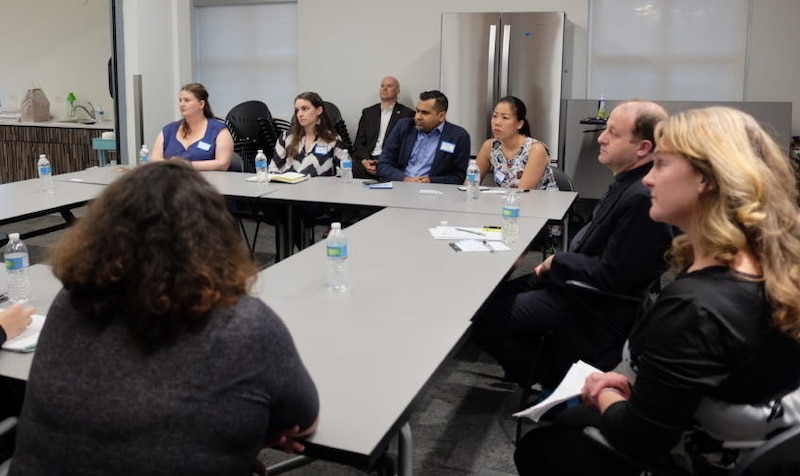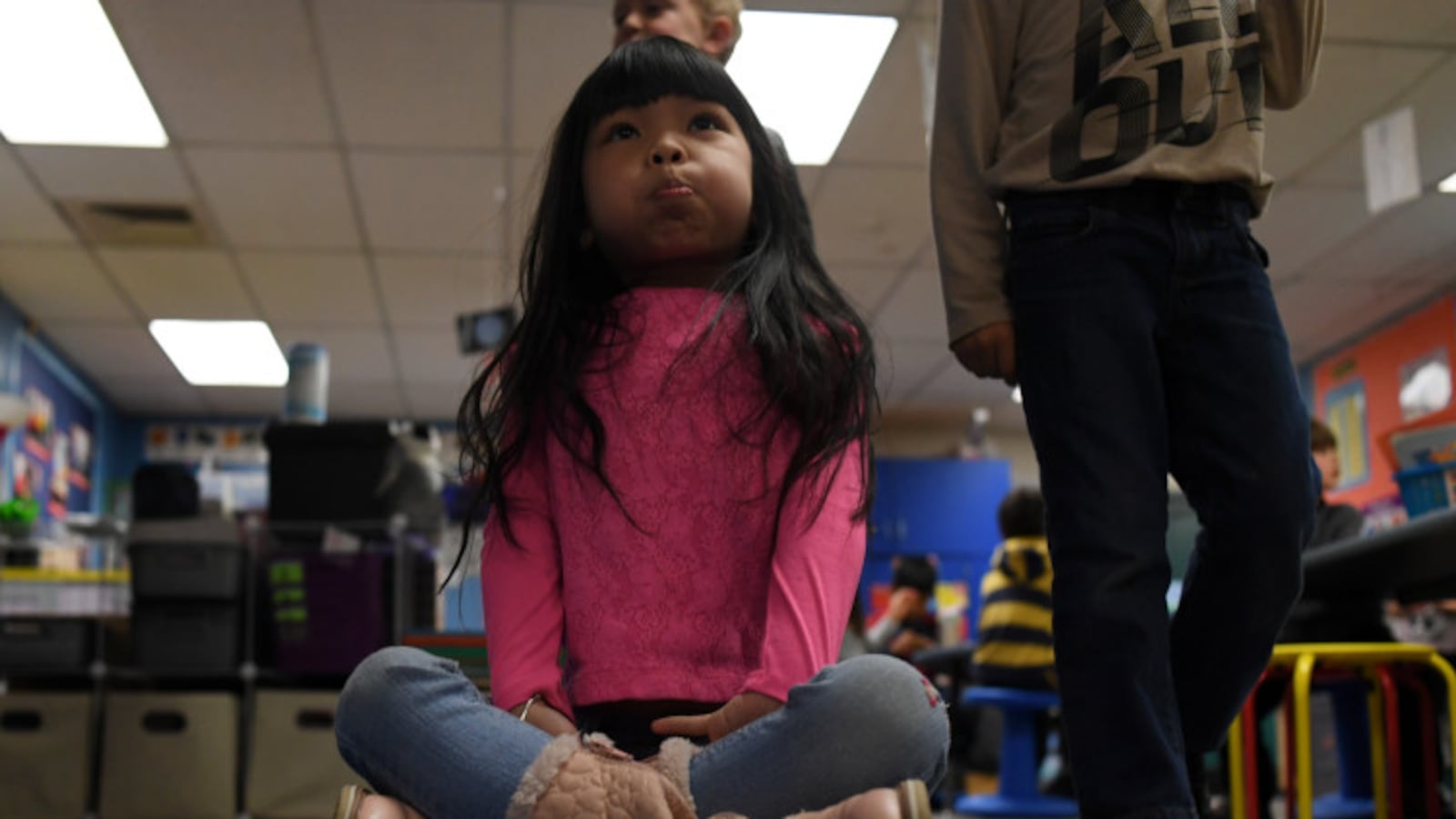Jeannie Nelson didn’t have to pay for full-day kindergarten for her two older children because her family was below the Denver school district’s income threshold. But her husband, an EMT, recently got a raise, and now the family is waiting to know if they’ll have to pay for their third child, a 5-year-old who will enroll this fall.
That prospect is forcing an agonizing conversation for the southwest Denver family. They’re also facing preschool costs for their fourth child, who has multiple disabilities.
“Right now we’re on the bubble,” Nelson said. “So we’re at a point that, if we have to pay, whose education is more important? The one that is slightly ahead but on track to just zoom through things? Or the one that has special needs that needs therapy that he gets through his school? That shouldn’t be even a factor.”
Colorado education advocates are marshalling these types of stories to bolster their argument that the state should cover the full cost of kindergarten for all students. Nelson was one of nearly a dozen parents from Highlands Ranch and Pueblo, Lakewood and Denver who gathered in a library community room Wednesday evening to tell Gov. Jared Polis why full-day kindergarten matters to them and why tuition represents a real hardship. The parents all work with Stand for Children, an education advocacy group.
The state budget, which got initial approval in the state Senate earlier Wednesday afternoon, includes $185 million to pay for kindergarten students at the same rate as older students. That’s about 80 percent of what Polis originally asked for and assumes that not all school districts will immediately implement it and that not all eligible students will enroll.
The governor’s office is still working with lawmakers to secure funding for start-up costs, which range from training teachers to buying more pint-sized tables and chairs to adding classrooms.
This school year, nearly 50,000 students attend full-day programs and another 13,300 attend half-day programs.
Right now, the state reimburses school districts for kindergarten students at a rate a little more than half the amount it pays for older students. Half-day kindergarten is free to parents, but many school districts offer full-day programs and charge parents to make up the difference. In some of those districts, including Denver, the free half-day option can be hard to come by.
Denver offers a sliding tuition scale based on income, but many others change a flat fee of $300 or $400 a month. Some districts offer half-day programs — including Boulder Valley and Cherry Creek with a combined 4,300 children in half-day kindergarten — while others use federal money for high-poverty schools or dedicated local taxes to pay for full-day programs.
Polis campaigned on providing full-day kindergarten at no cost to families, and he leaned on the lawmakers responsible for writing the budget to make room for it. The money to pay for it is coming from increased local property tax revenue that will free up state funds. Once on the Senate floor, the $185 million set-aside for full-day kindergarten didn’t even come up for debate.
However, the final form of the budget remains to be seen. Separate from the kindergarten funding issue, Democratic and Republican leaders brokered a deal Wednesday afternoon to transfer $106 million to transportation from other departments, with the governor’s office charged with making line-item cuts to free up the money. Polis said those changes shouldn’t touch the kindergarten initiative, but it’s not clear if other education programs could get hit.
The budget still needs to clear the House. And on April 9, House Bill 1262, which sets the per-pupil rate for kindergarten students and prohibits districts from charging tuition, gets its first hearing in the House Education Committee.

Polis credited the work of organizations like the Colorado Children’s Campaign, Stand for Children, and others who formed the Kindergarten Now Coalition for highlighting the stories of families that have struggled to pay and for keeping the pressure on lawmakers, including some from his own party who wanted to phase in full-day kindergarten instead.
The kindergarten funding will put money in the pockets of families that would have otherwise paid tuition and allow districts using federal funds for kindergarten to put that money to other uses.
Nelson noted that families like hers that are “on the bubble” for kindergarten tuition are also often on the bubble for other benefits. The same raise that leaves her on the hook for full-day kindergarten also cost her family Medicaid. Now they’re also paying $400 a month in health insurance premiums.
Christin O’Rourke, of Highlands Ranch, said she had to borrow to cover the $400 monthly kindergarten tuition for each of her children. They’re older now, but as a school-based social worker, she sees the difference that full-day programs make in helping kids develop the emotional and social skills to succeed in school.
Leilani Siens, of southwest Denver, said her two older children both received important services through public preschool and kindergarten, with one’s hearing loss detected in a screening and another receiving speech therapy at school. Now her youngest is 4.
“I had also been home with my younger son for four years and full-day kindergarten would allow me to go back to work and start contributing to my family’s financial success again,” she said.
Polis stressed that relief is near.
“People just think that government is so slow and nothing ever happens,” he said. “People say, ‘Oh, when will this be done?’ This is for this fall, folks. We’re talking about August. It’ll be determined in the next 30 days.”

